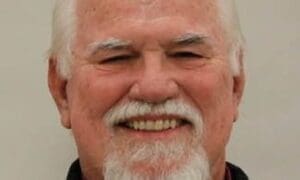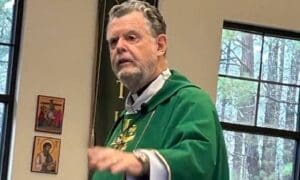I love history. I love Sunday School. So it only stands to reason that I would love the “History of Sunday School,” right?
Here’s a short version, thanks mainly to an article by Timothy Larson of Christian History magazine.
Sunday Schools were originally schools where poor children could learn to read. The Sunday School movement began in Britain in the 1780s. The Industrial Revolution had resulted in many children spending all week long working in factories. Christian philanthropists wanted to free these children from a life of illiteracy.
Well into the 19th century, working hours were long. The first modest legislative restrictions came in 1802, limiting the number of hours a child could work per day to 12. This limit was not lowered again until 1844. Moreover, Saturday was part of the regular work week. Sunday, therefore, was the only available time for these children to gain some education.
The English Anglican evangelical Robert Raikes (1725-1811) was the key promoter of the movement. It soon spread to America as denominations and non-denominational organizations caught the vision and energetically began to create Sunday schools. Within decades, the movement had become extremely popular.
By the mid-19th century, Sunday School attendance was a near universal aspect of childhood. Even parents who did not regularly attend church themselves generally insisted that their children go to Sunday school. Working-class families were grateful for this opportunity to receive an education. They also looked forward to annual highlights such as prize days, parades, and picnics, which came to mark the calendars of their lives as much as more traditional seasonal holidays.
Religious education was, of course, always also a core component. The Bible was the textbook used for learning to read. Likewise, many children learned to write by copying out passages from the Scriptures. A basic catechism was also taught, as were spiritual practices such as prayer and hymn-singing.
Inculcating Christian morality and virtues was another goal of the movement. Sunday School pupils often graduated to become Sunday School teachers, thereby gaining an experience of leadership not to be found elsewhere in their lives.
In both Britain and America, universal, compulsory state education was established by the 1870s. After that, reading and writing were learned on weekdays at school and the Sunday school curriculum was limited to religious education. Nevertheless, many parents continue to believe that regular Sunday School attendance is an essential component of childhood.
Let me repeat that last sentence. Many parents continue to believe that regular Sunday School attendance is an essential component of childhood. That’s the kind of parent or grandparent I hope you are! I certainly believe and encourage that regular Sunday School attendance is an essential component of childhood.
So much good for your child can come from Sunday School. In our overly politically-correct secular society, where else can your children learn about the God who created and loves them … their Savior who died and rose for them … the true meaning of life and existence? Where else can your children be loved with an unconditional love?
One of my favorite observations about Sunday School is that there is an answer to every question in Sunday School that can never be wrong. For example the teacher can ask, “In the story of The Children of Israel being held in captivity as slaves in Egypt by the mean Pharaoh, who came to set them free and take them to the Promised Land?”
Well, the hands in the Sunday School class all shoot up, and the little voices squeal out, “Pick me! Pick me!”
So the teacher points to Johnny, and Johnny so confidently shouts out the answer he has come to trust as “The Sunday School Answer,” and he says, “Jesus!”
Then what happens? It goes like this: The teacher says in a calm and loving voice, “Well, yes, Johnny, Jesus is the ultimate power behind every act of faith, and it is Jesus who is working through everyone who does what God calls him or her to do, so Jesus could definitely be the right answer, but we also need to remember Moses in this story.”
See? It’s never wrong! And you know what I like about that? It’s true! “Jesus” is the “answer” that is never wrong. In every circumstance of life, good or bad, it is Jesus who is the “The Answer.”
You know where I learned that? In Sunday School. And, boy, I‘m glad I did!
For many of us, Sunday School starts back the Sunday after Labor Day, this year it’s Sept. 12. Here at Prince of Peace we have Sunday School every Sunday at 10:20 a.m., and it’s not just for children, but also for all youth and all adults. If you want your children to be a part of such a great event, and your youth, and yourselves, then join us or find one in a church near you.
Kollmeyer is Sr. Pastor of Prince of Peace Lutheran Church on Hwy. 314 in Fayetteville. www.princeofpeacefayette.com











Leave a Comment
You must be logged in to post a comment.